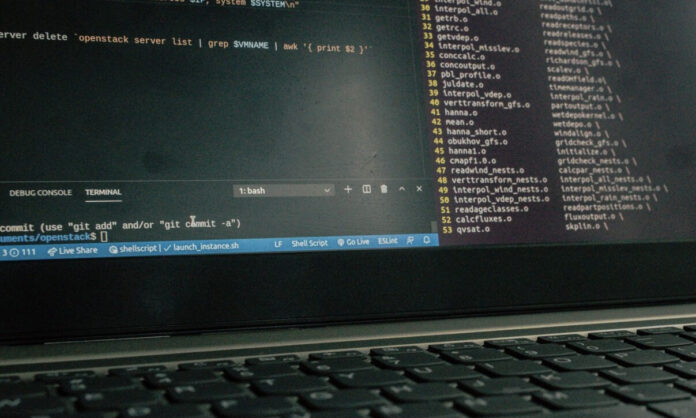It was bound to happen sooner or later. Cyberthieves have snuck (snicken?) past the previously impenetrable wall of Apple computers and smartphones.
And it just got worse – thanks to the emerging technology of Artificial intelligence (AI).
In the past, cyberterrorists were proficient coders so they created complicated codes that allowed them to hack into systems. With the advent of AI, the cyberterrorists no longer need to be coders. This development means that less skilled, less sophisticated bad actors can attack you.
It also means a larger network of hackers will be attacking our computers.
What diabolical route will many of them take now? Computer games! You may not play top-selling games such as Resident Evil Village or War of Warcraft but you could still be equally at risk when playing simpler games such as Tetris, Candy Crush, and Word Crush.
Being a gamer places you at risk when you see a fun-looking game promoted by a social media post or sent via direct message. That’s precisely where you are likely to encounter the evil that lurks within. Your adversary is known as “Realst” – a malware platform that can attack you through more than a dozen different variations.
While this column addresses the newly found potential vulnerability of Mac computers, these same hacking schemes are even more effective on PC models. Every computer user should practice extreme caution whenever considering a new game app or download.
The “Realst” platform targets most of the major browsers: Brave, Chrome Firefox, Opera, Vivaldi, and others. Please note that the platform is not currently targeting Safari, which I attribute to the robust protections Apple has created inside its proprietary browser.
Here is how “Realst” attacks your computer’s operating system:
- It appeals to you by offering an enticing game you just cannot resist, with the offer originating in a social media post or a direct message
- While the game opens up, it also immediately accesses – and may corrupt – your entire operating system. It will siphon off your passwords, cookies, and sensitive data, all within seconds.
Please understand – even if you do NOT play games on your computer, tablet, or smartphone, clicking on a link from social media or a direct message should raise suspicion.
If you want to download a game or any software, I strongly recommend that you use your App Store. It’s safe, it’s secure, and the applications have been vetted by the platform.
Here are some statistics about cybertheft and disruption that will shock you:
- Cyberattacks have increased by 300% since 2020.
- Employees in a small business are 350% more likely to be subject to a cyberattack than someone at a larger corporation.
- 61% of these attacks gain access by using hacked employee credentials.
- 94% of cyberattacks are delivered by email.
- It takes an average of 120 days for a company to discover it has been hacked.
Please pay attention to that last point. It takes an average of 120 days to discover you have been hacked.
By that time, your best customers are likely to have been hacked. Once they discover your company was the gateway for the attack, your reputation becomes so tarnished that you may never recover.
The most specific attacks – and least publicized due to the volume and embarrassment of the company owners – have been on small businesses, which, as non-public companies, are not required to report their breaches.
And these are the saddest statistics:
- 60% of small and medium-sized companies go under within six months of the breach.
- 26% of compromised companies that suffer a breach do absolutely nothing to prevent another attack from happening, so they are particularly vulnerable. The FBI reports that companies that pay the ransom go on a list that is then circulated within the cyberterrorism world.
You have two choices of how to proceed from this moment. One choice is to simply hope you will never experience a breach. The challenge is not “if” but “when” you will be attacked, so you will ultimately need to identify, isolate, and remove the threat; complete a full business scan with your security software frequently; update and continue to regularly update your system and software; reach out to an IT professional to conduct a clean sweep and to establish protocols to prevent a return of the breach.
Or you can avoid the cyberattacks by taking proactive measures now. This proactive approach can protect your reputation, your data, your business bank account, and your vital customer relationships.
I always recommend that companies and individuals conduct a Cybersecurity Risk Assessment that includes:
- Recognizing and addressing your vulnerabilities and potential threat areas – EVERY entity has vulnerabilities that need to be shored up and protected.
- Proactively protecting systems, data, and customers from attack – installing and updating systems and protocols that become part of your company’s regular routine.
- Educating and training all employees – remember that 90% of attacks happen from the inside, so employees must recognize the valuable role they play in keeping cybersecurity safety enforced.
- Minimizing the risk of financial loss, reputational damage, and operational disruptions by continually making software updates and investing in hardware upgrades as needed.
With the advent of AI, cybersecurity is a scarier version of the Wild, Wild West than we have ever experienced. Your level of diligence in protecting your cyber assets will determine whether or not you will be one of Tarrant County’s most successful businesses, or if you will be a mere footnote in the community’s history.
Now is the time to reach out to a cybersecurity professional to conduct your Cybersecurity Risk Assessment.
Michael D. Moore is the founder and CEO of M3 Networks, an IT Support and Cybersecurity firm located in Southlake with a nationwide presence. He has well over 20 years of experience in the IT and cybersecurity field and has been an in-demand speaker as an expert on cybersecurity and HYPER business growth utilizing technology as rocket fuel. He co-authored Cyber Storm, a book featuring cybersecurity experts’ stories/testimonies from around the world.










